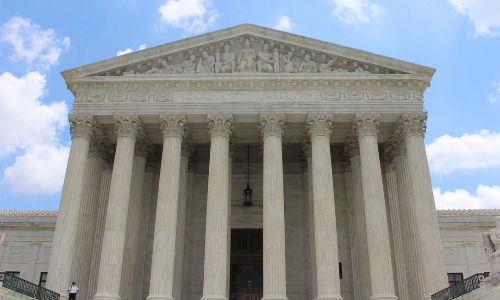By Victor Skinner | The Center Square – November 9, 2023
(The Center Square) — A trial over alleged damage to the coast by oil companies in Cameron Parish will proceed as scheduled on Nov. 27 after the U.S. Supreme Court this week denied a request to block it.
U.S. Supreme Court on Tuesday denied a request from BP, Shell, and Hilcorp oil companies to halt litigation seeking $7 billion in damages for coastal erosion in Cameron Parish, the first of more than 40 similar lawsuits against hundreds of oil and gas companies in Louisiana set for trial. The state of Louisiana and the Louisiana Attorney General are co-plaintiffs in the lawsuits.
“The application for stay presented to Justice (Samuel) Alito and by him referred to the Court is denied,” the brief unsigned order read.
The oil companies wanted justices to put the trial on hold until the U.S. Supreme Court rules on a petition for review of prior state court decisions. Without the stay, the companies argued they would “be forced to defend a trial in a case brought by Cameron Parish, Louisiana, that seeks more than $7 billion in front of a venue of 4,000 residents of the very same Parish, everyone of whom has a substantial personal and financial interest in rendering a verdict for their home parish.”
“This unprecedented situation threatens the clearly established federal due-process rights of these defendants to have their case adjudicated by a neutral, disinterested decisionmaker,” according to the application for emergency stay. The filing noted Cameron Parish “has annual tax revenues of only $20 million.”
The parish, represented by the Baton Rouge law firm Talbot, Carmouche & Marcello, countered “there is no evidence in the record that Cameron Parish residents are biased against Applicants on account of their personal, financial or other interests in the outcome of this case.”
The attorneys cited a recent election that replaced five of seven of the parish’s police jury members who had supported the parish’s coastal litigation. The parish also noted that the lawsuit filed in 2016 under the state’s federally approved State and Local Coastal Resources Management Act is governed by a mandatory venue provision that states “any action … whether criminal or civil, must be brought in any parish in which the use or activity is situated.”
The Supreme Court decision follows a previous denial from a state judge, which was upheld by the appeals court and the Louisiana Supreme Court, to move the trial to a different parish.
Dozens of the oil companies facing lawsuits previously sought to move the cases to federal court, but those requests were all denied. The U.S. Supreme Court in February declined to hear appeals on that issue.
In August, the Pelican Institute exposed a deposition from April 2023 in which DNR Secretary Thomas Harris admitted under oath that instead of investigating allegations against oil and gas companies before joining lawsuits claiming damage to the coast, he allowed law firms representing parishes that benefit from the case to do the work.
The deposition involved Parish of Cameron v. Auster Oil and Gas, Inc., et al.
“Secretary Harris’ testimony is concerning,” said Sarah Harbison, general counsel at the Pelican Institute, told The Center Square at the time. “It makes you wonder what’s happening every day in the department.”
In October, the DNR revived a stalled $100 million settlement in another related lawsuit involving Freeport-McMoRan Inc. by signing the agreement on behalf of several parishes that refused to participate.
Research from the Pelican Institute shows the state lost 2,000 jobs two years after the first coastal lawsuits were filed in 2013, resulting in $70 million in lost wages. The policy group estimates between $43 million and $113 million in annual economic losses since the lawsuits were filed, which equates to a $22.6 million loss for state and local governments for schools, roads and other infrastructure.






